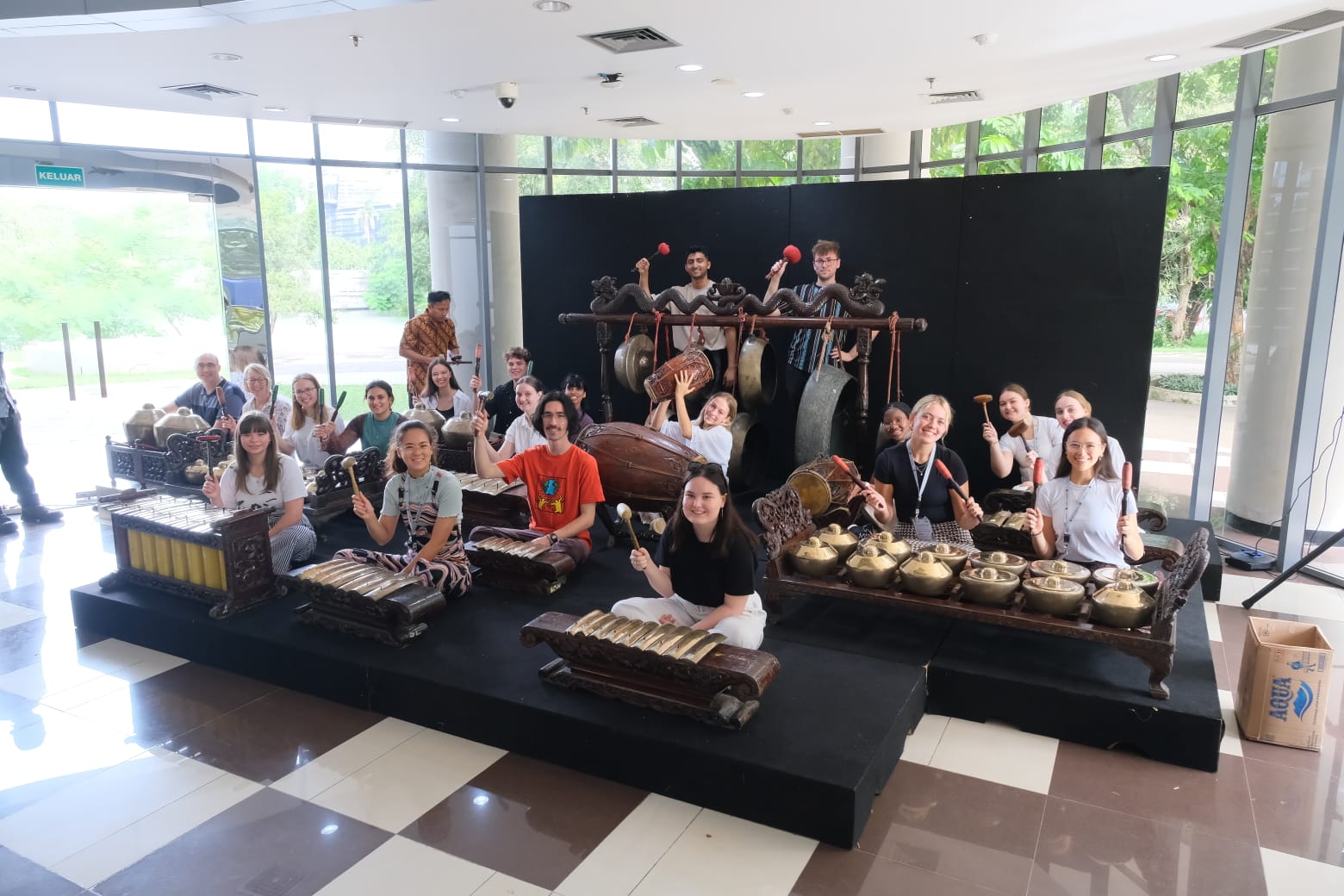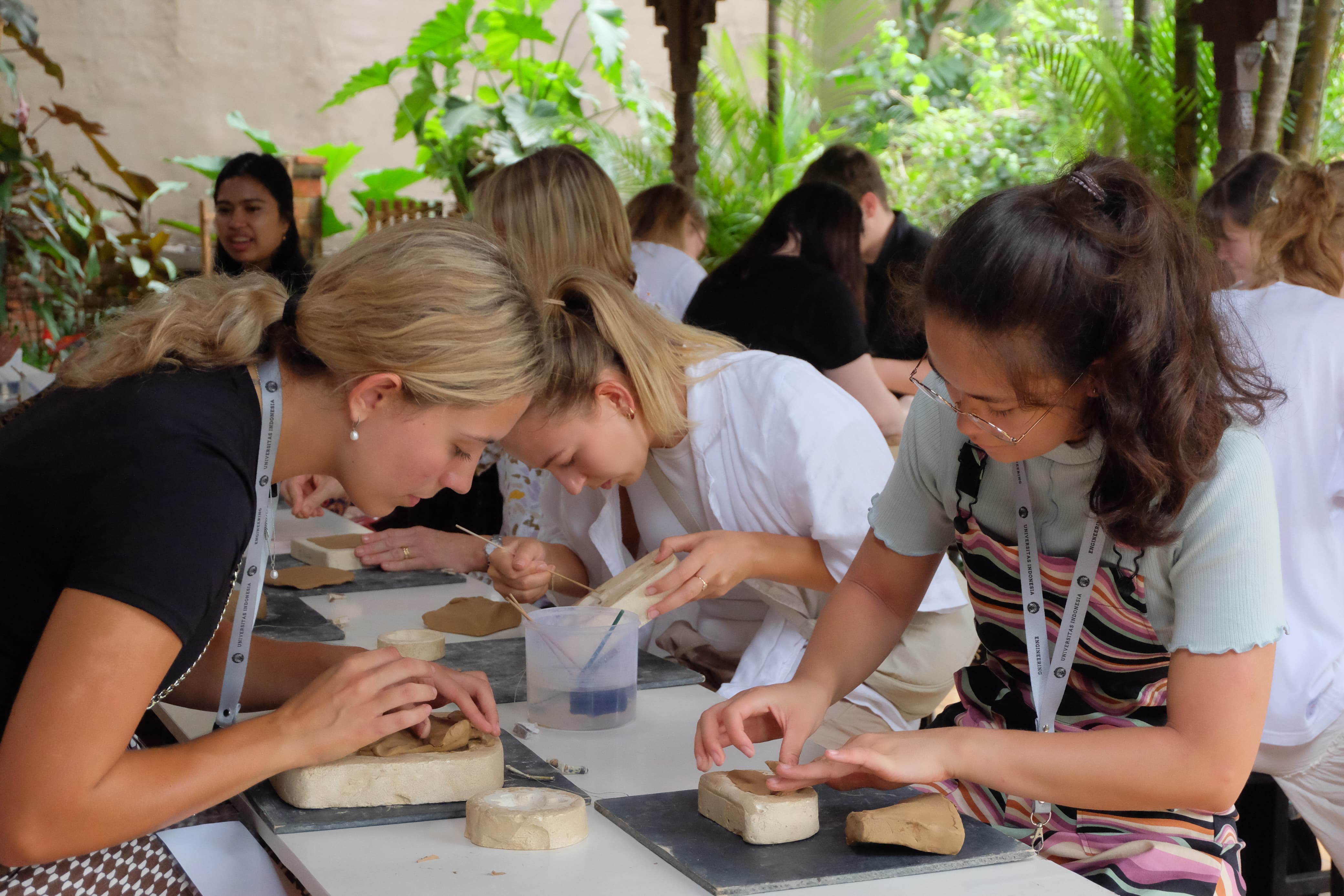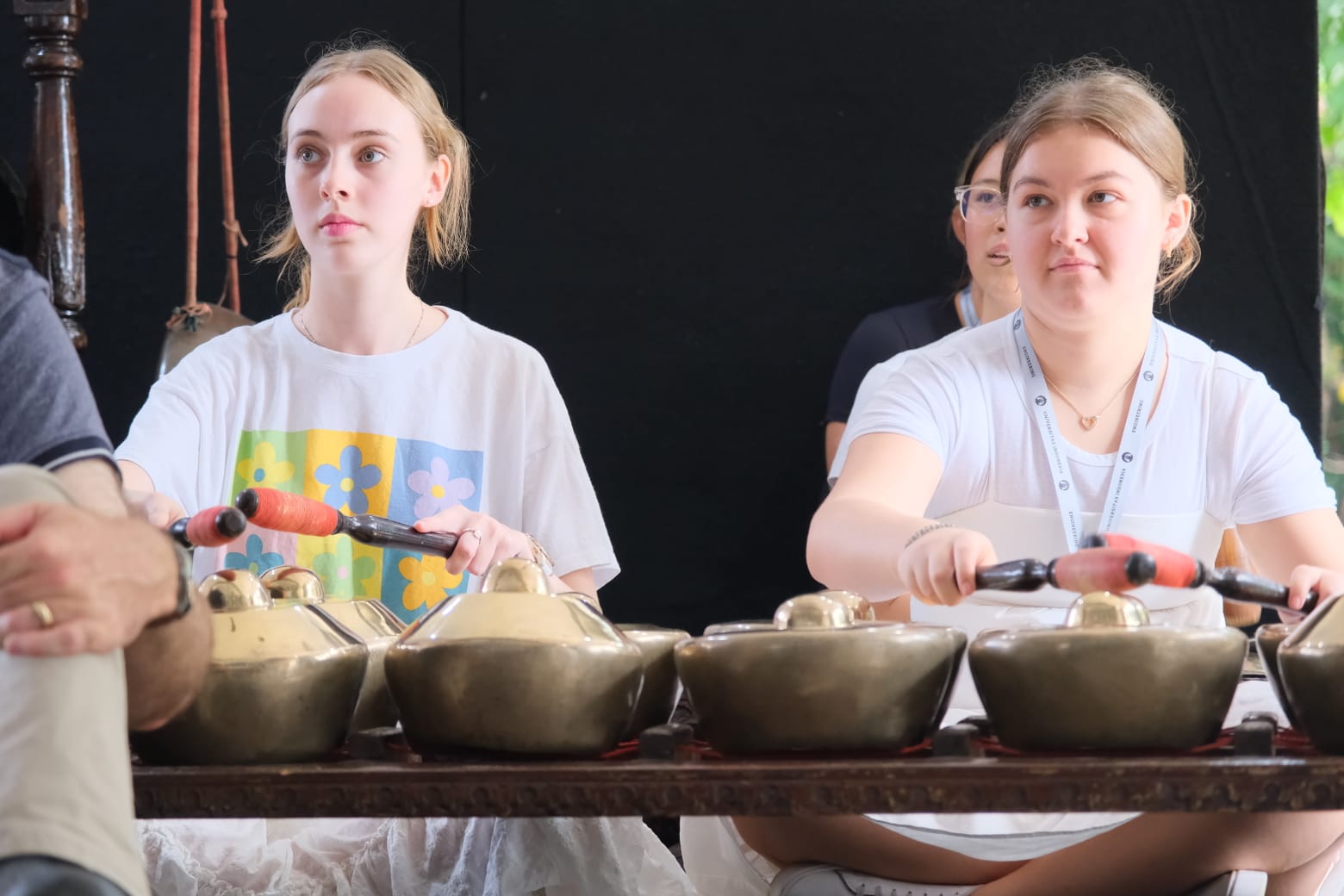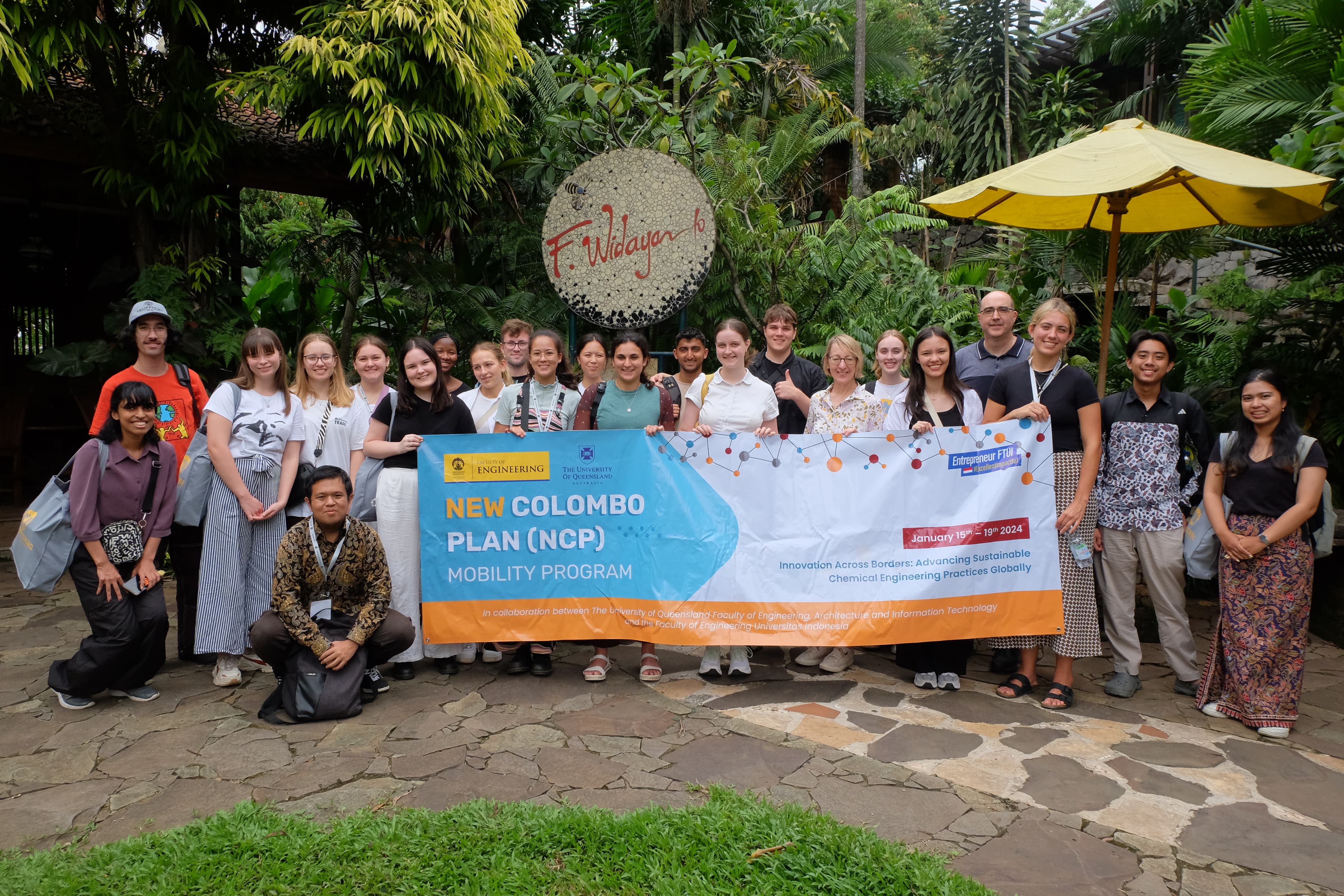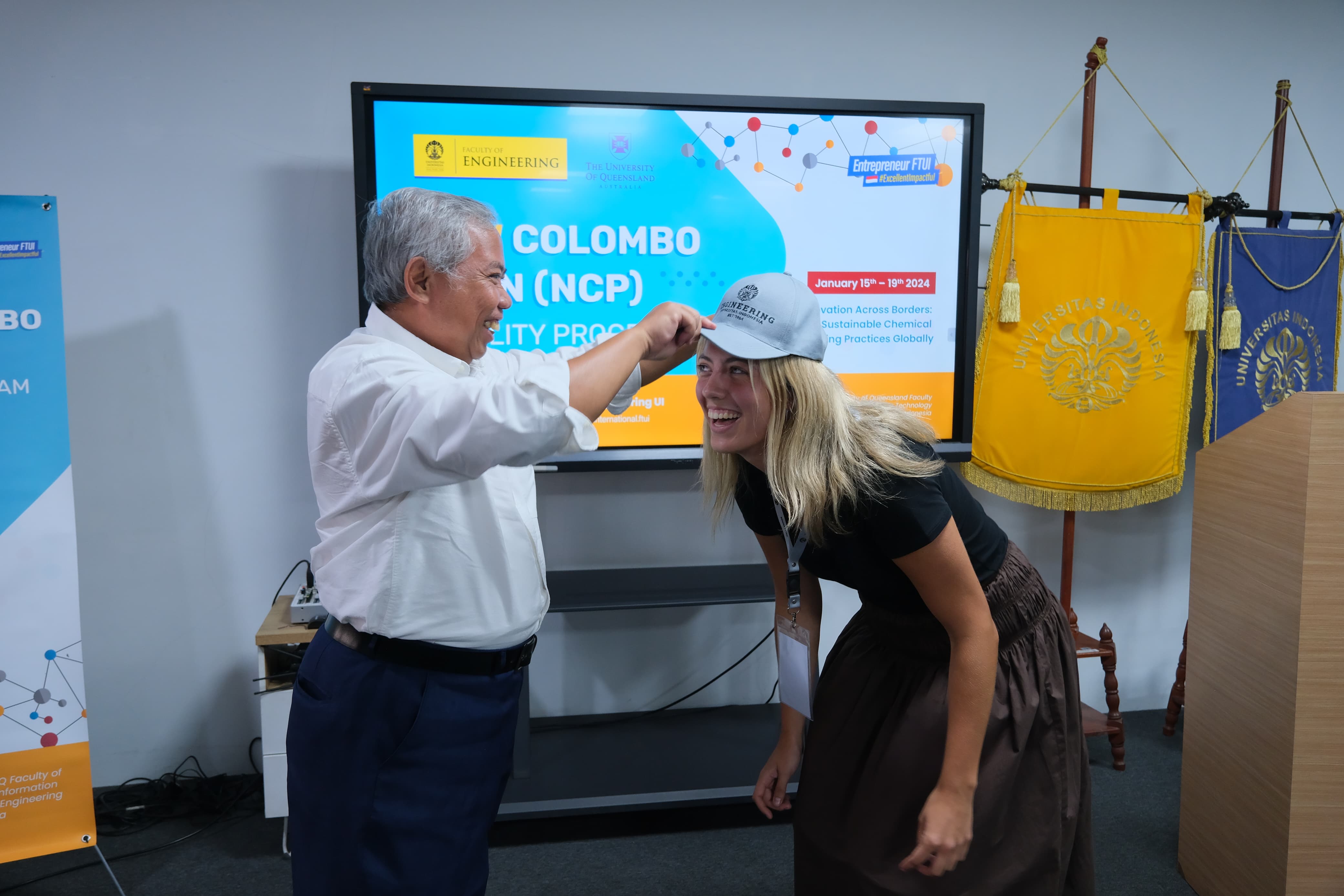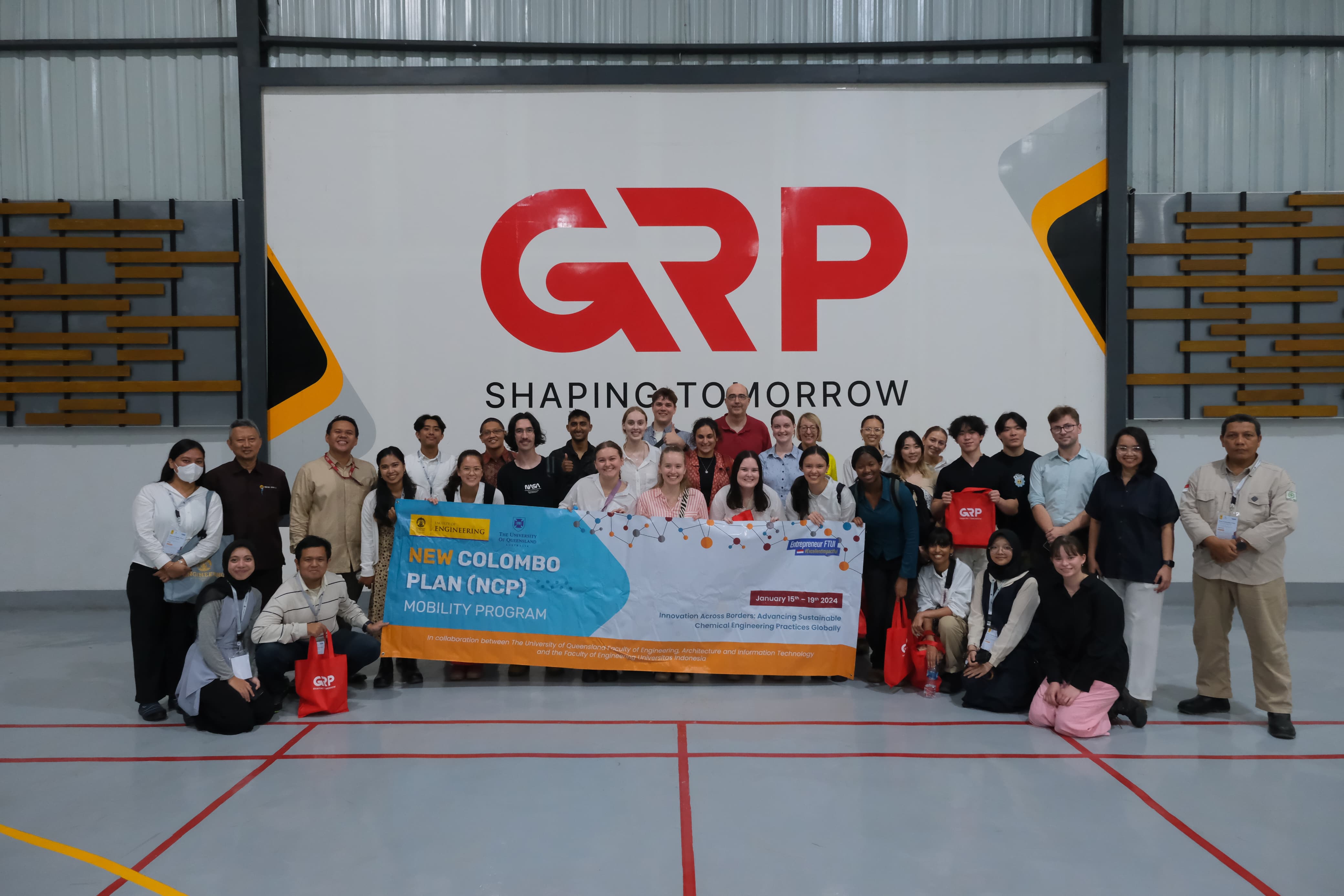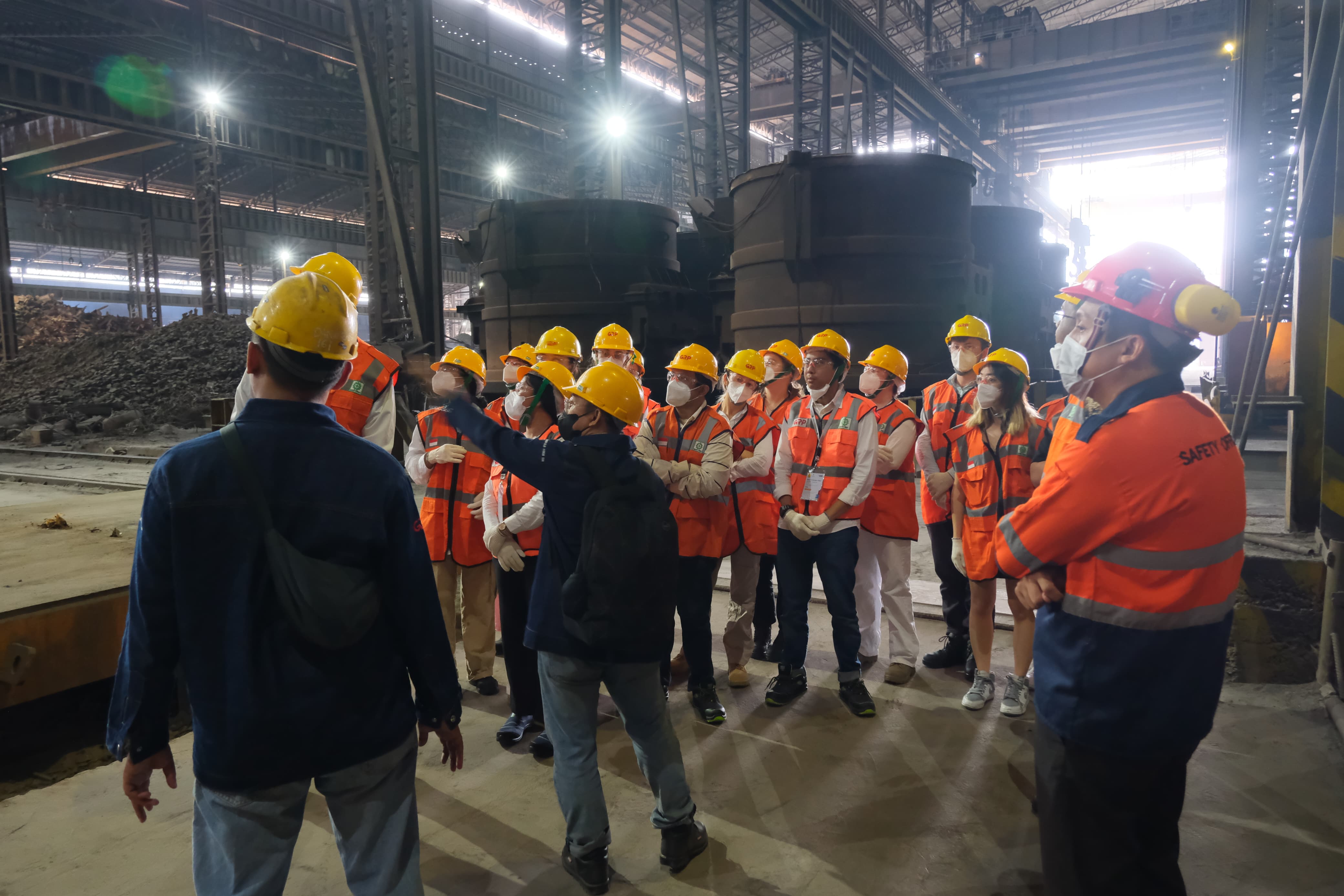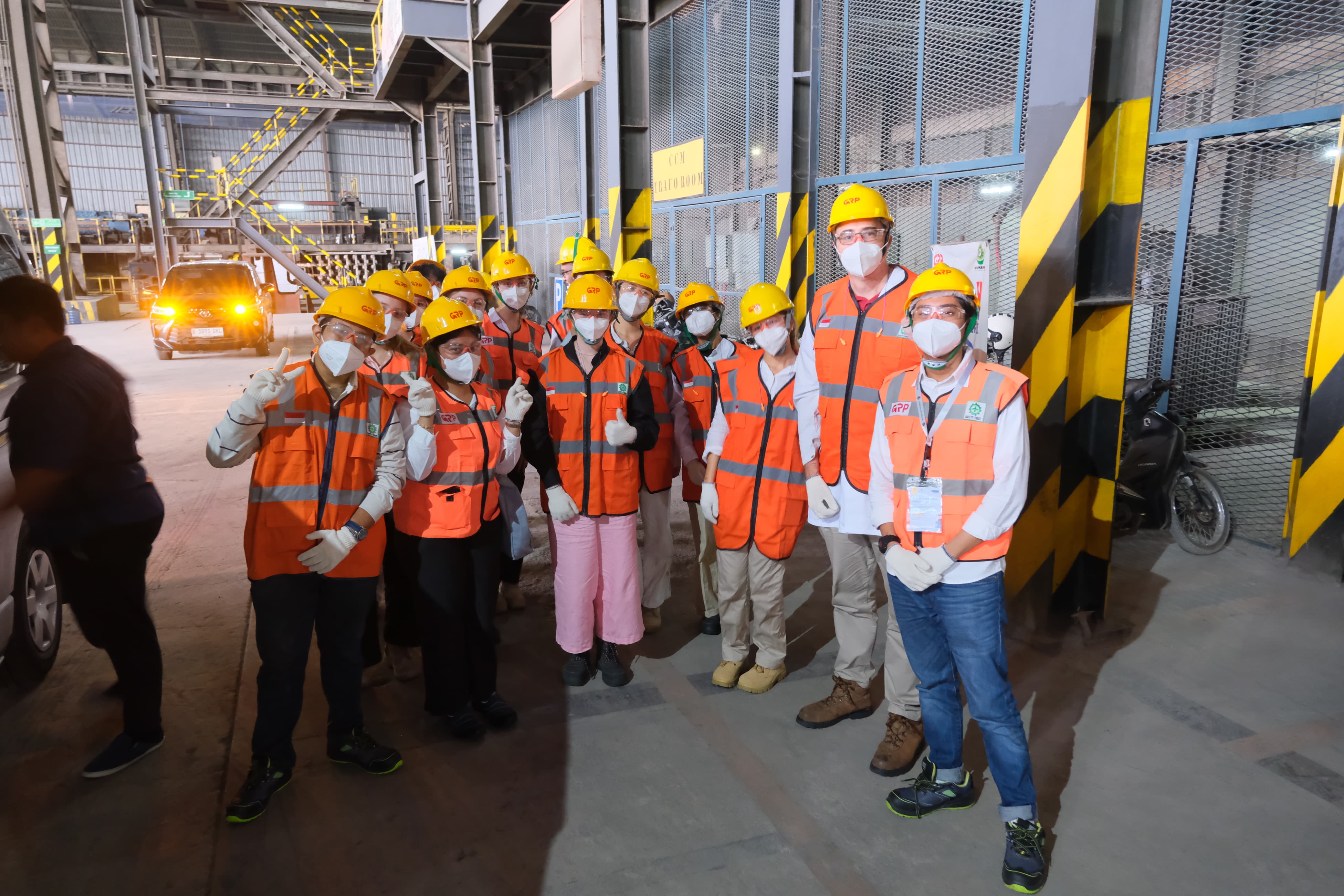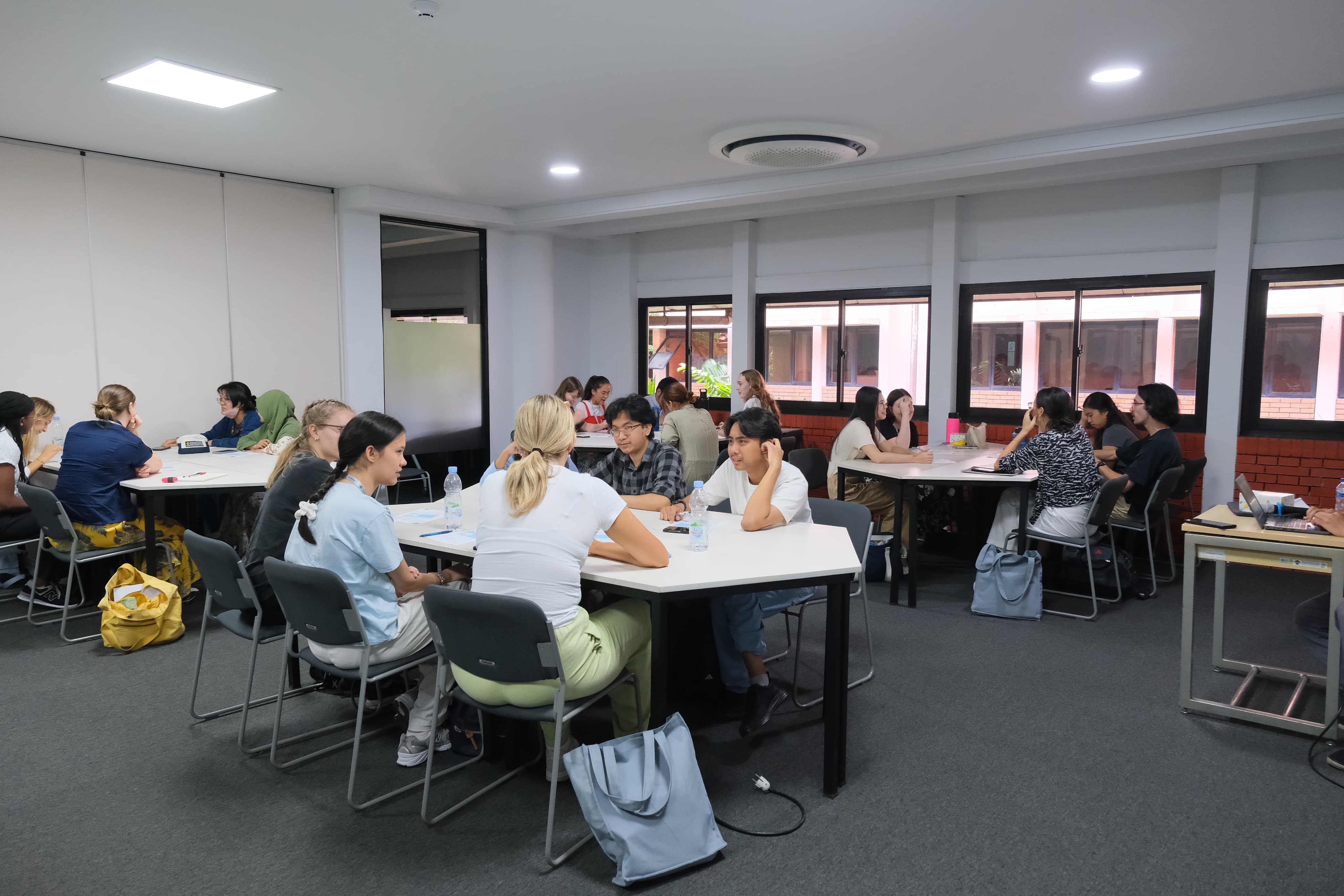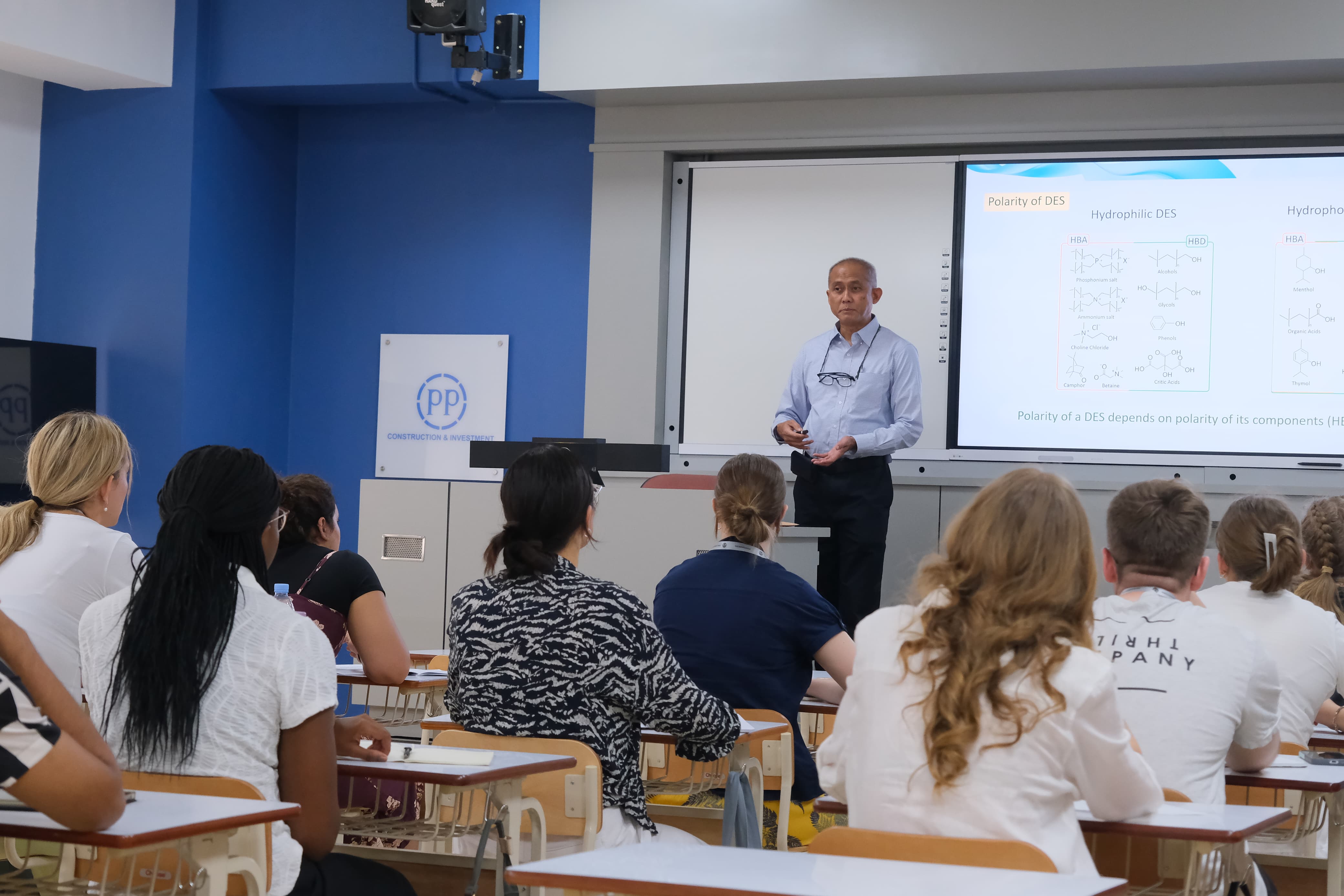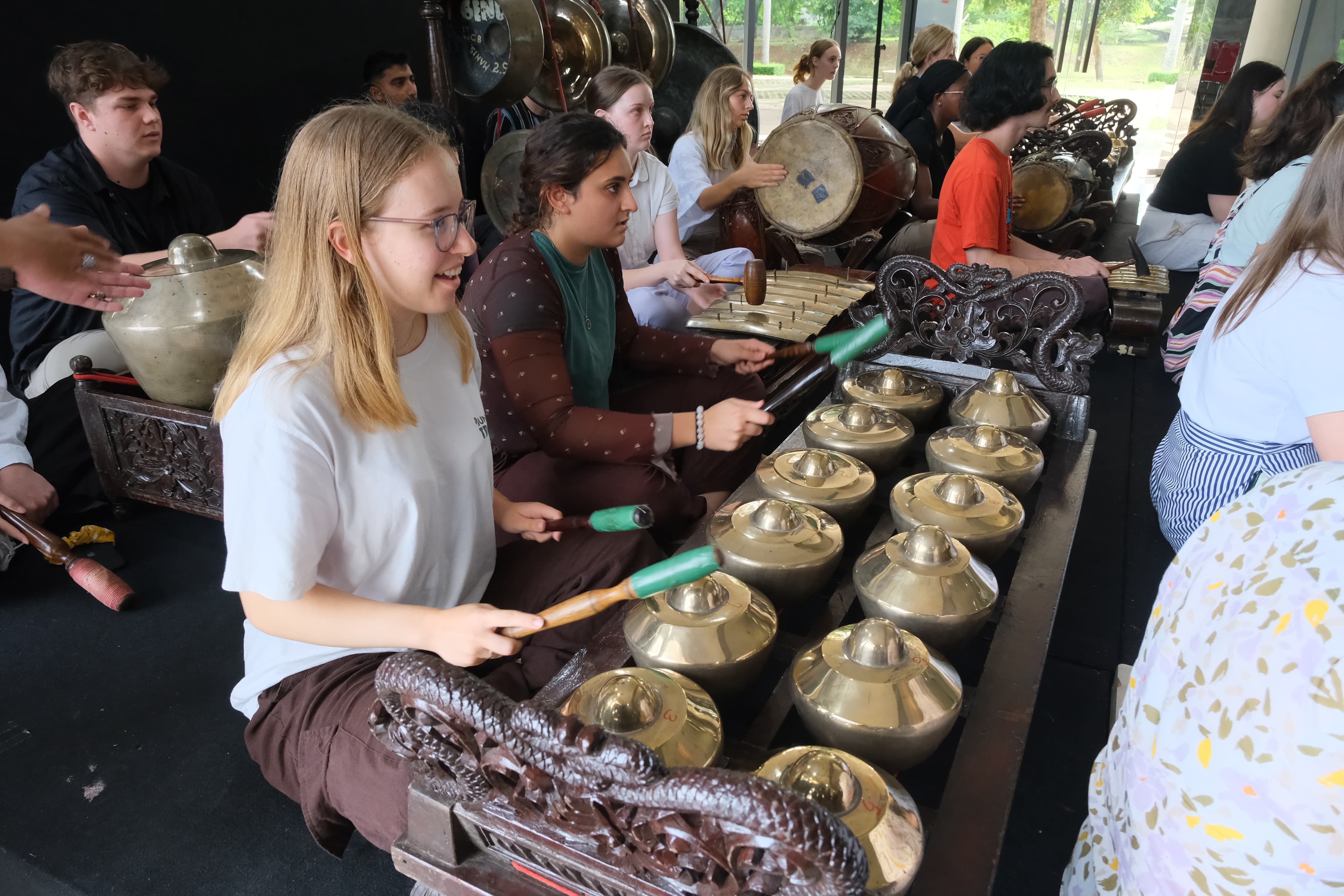A total of 18 students from the University of Queensland undergoing the New Colombo Plan (NCP) at the University of Indonesia (UI) played pentatonic gamelan music at the Makara Art Center, UI. The participation of these students is a contribution to the program themed ‘Innovations Across Borders: Advancing Sustainable Chemical Engineering Practices Globally,’ where FTUI once again had the opportunity to host the NCP collaboration program with the Faculty of Engineering, Architecture, and Information Technology (EAIT) of the University of Queensland (UQ).
NCP is an Australian government flagship initiative that offers scholarships and grants for young Australian scholars to live, learn, and participate in internships or training in the Indo-Pacific region, including Indonesia. The NCP program took place from January 15 to 19, 2024, involving 18 students from EAIT-UQ.
“This one-week program will provide experiences and insights into the field of chemical engineering and professional development in the global environment in Indonesia. Please make the most of this opportunity to learn and get to know Indonesia academically and culturally. For us at the university, educating our students to gain knowledge and experiences is always a priority,” said Prof. Dr. Ir. Heri Hermansyah, S.T., M.Eng., IPU., Dean of FTUI.
Meanwhile, Beverly Coulter, Senior Lecturer in the School of Chemical Engineering at the University of Queensland, expressed, “We are very pleased to be back here. Last year, we brought 40 UQ students to FTUI, and in 2024, we brought 18 of our students to learn about the Faculty of Engineering and the University of Indonesia. From the planned program, in addition to academic activities, students will also learn about the beautiful culture of Indonesia. We hope that through this program, connections and networks between future engineers in Indonesia and Australia can be established. Hopefully, the relationship between UQ and FTUI will grow stronger in the future.”
The NCP activities include academic and non-academic activities. Academic activities include discussions, case studies with FTUI students, and industrial visits. Academic discussions were conducted with two professors and lecturers from the Department of Chemical Engineering FTUI. Prof. Ir. Kamarza Mulia, M.Sc., Ph.D., discussed the Application of DESs to Improve the Sustainability of (Bio)Chemical Processes, and Dr. Intan Clarissa Sophiana, S.T., M.T., discussed Revolutionizing Chemical Engineering: Maximizing Efficiency through Process Intensification. In the case study activity, EAIT-UQ students were divided into small groups for discussions with FTUI Chemical Engineering Department students.
Furthermore, UQ students also visited the industrial site of PT Gunung Raja Paksi Tbk. This company is a steel manufacturer founded in 1970 in Medan, North Sumatra, and a member of the Gunung Steel Group, one of the largest private steel companies in Indonesia. Here, in addition to historical information, students learned about the steel processing process with chemical engineering.
In addition, they also gained non-academic experience with an introduction to Indonesian culture and language, including Javanese gamelan workshops and pottery making. Through direct interaction with Indonesian culture, students can gain a deeper understanding of the richness and diversity of Indonesian culture. The introduction to Indonesian culture also took place with a cultural visit to Taman Mini Indonesia Indah (TMII), where they could witness the diversity of traditional houses owned by each province in Indonesia.
Lilia Virtue, one of the EAIT-UQ students, said, “We are very excited to learn new things related to Indonesia. I look forward to cultural activities where we will learn about Indonesia’s cultural diversity. This is a valuable experience for us to understand better and appreciate the uniqueness of the local culture. The opportunity to visit local industries is also something I am eagerly anticipating. Hopefully, we can gain insights into the application of chemical knowledge from industries in Indonesia.”
***
Office of Public Communication
Faculty of Engineering Universitas Indonesia

